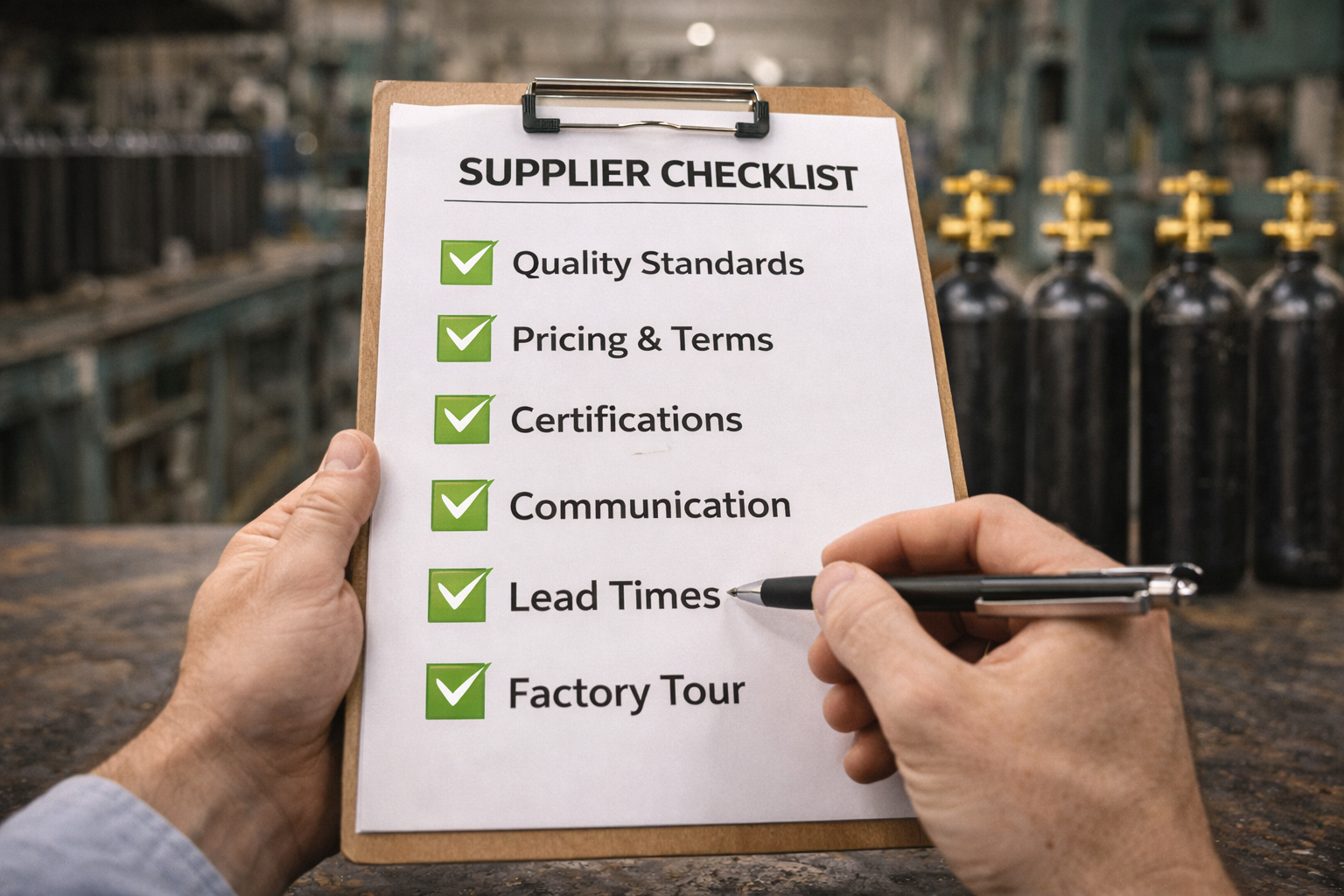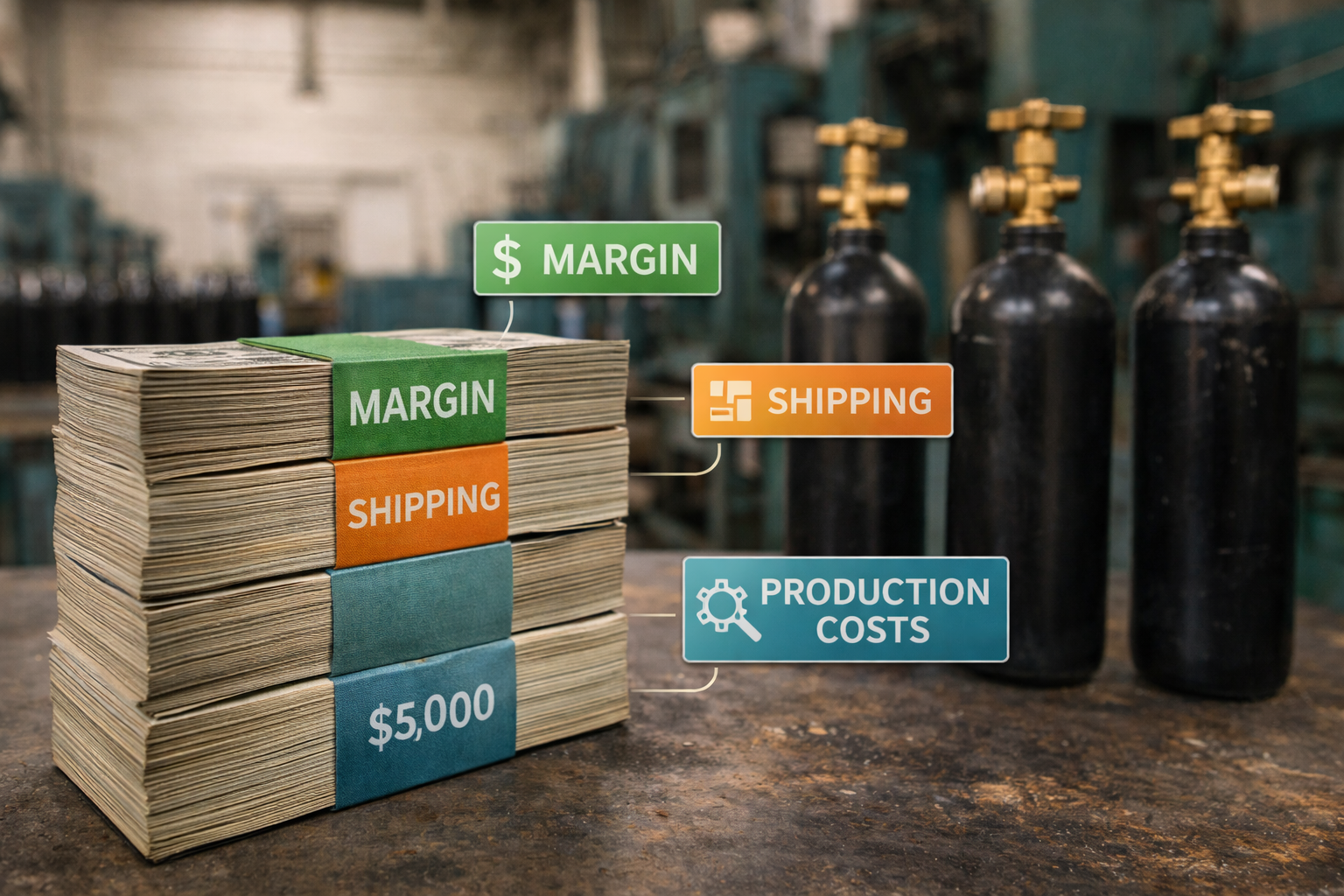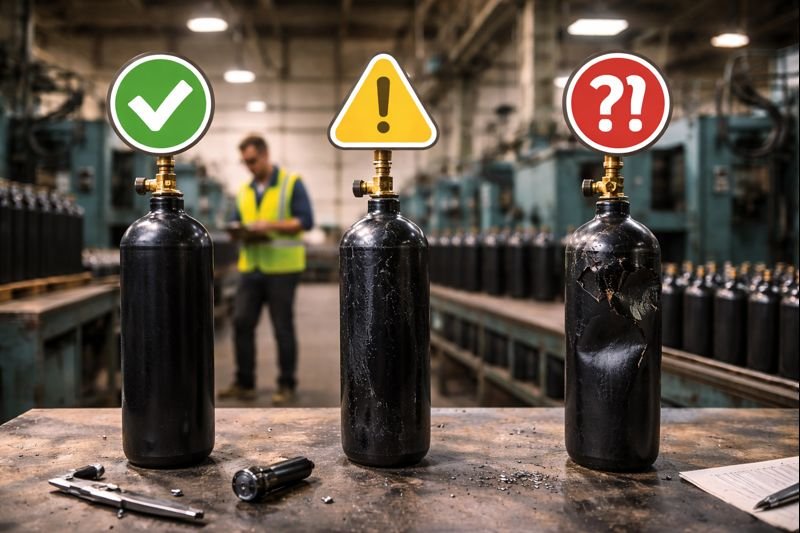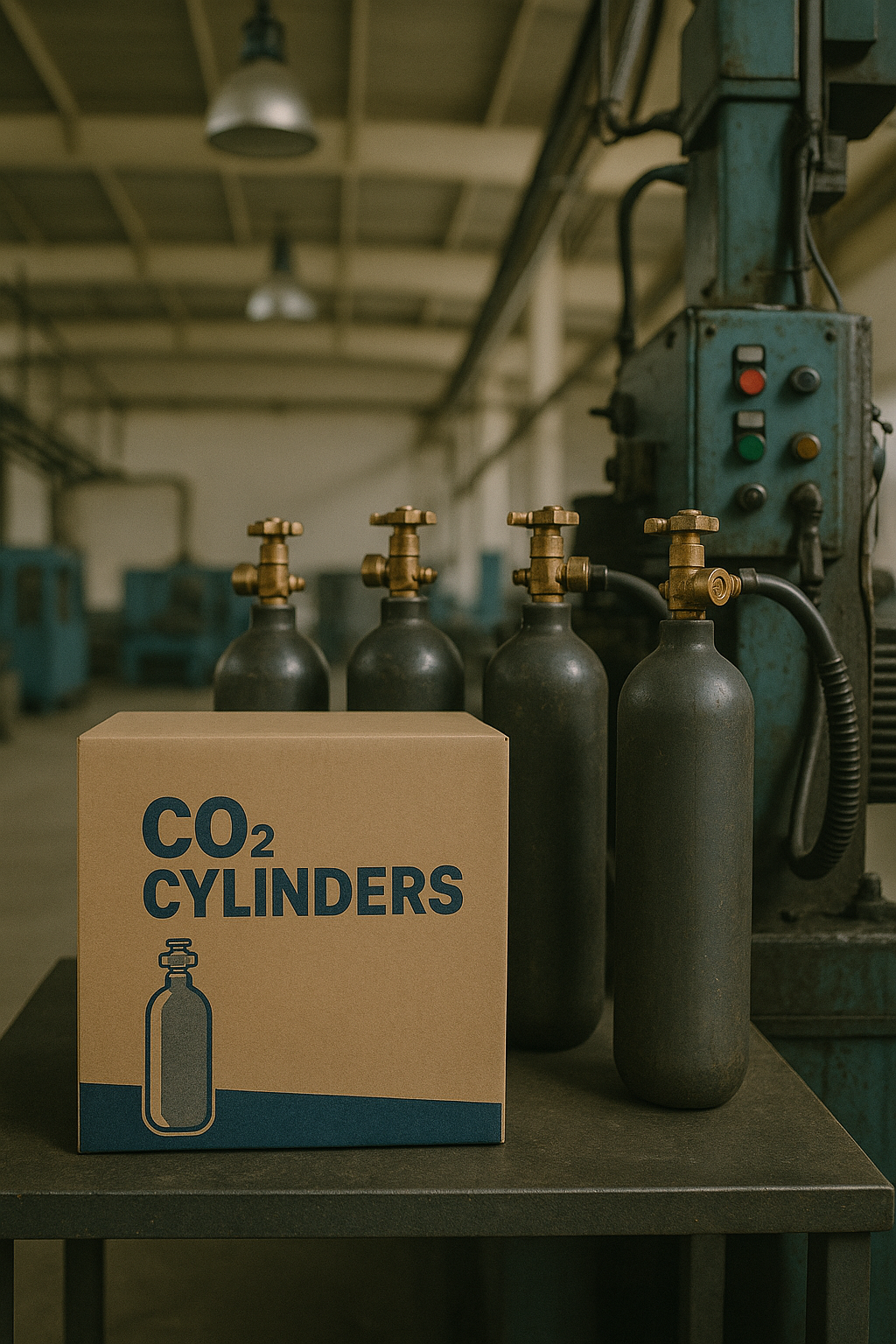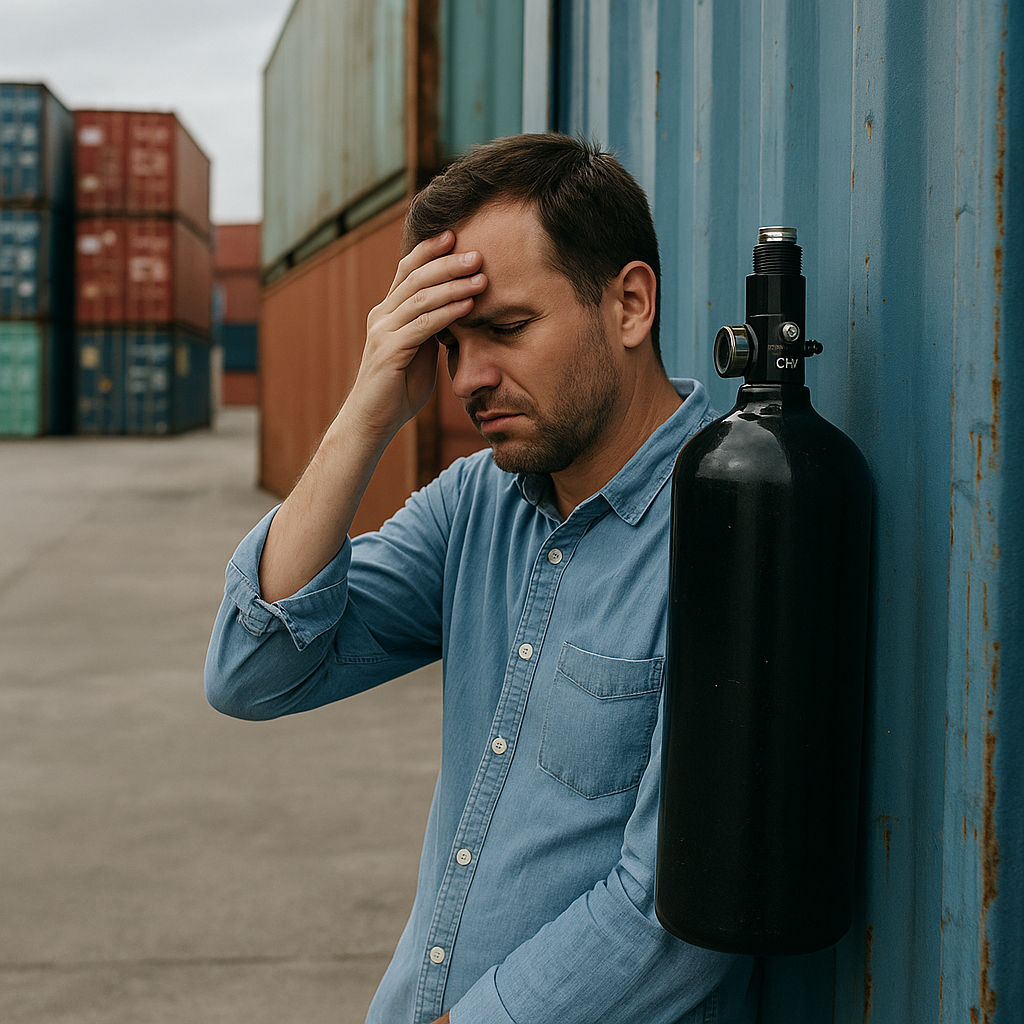When it comes to scuba diving, failure is not an option—your gear must work flawlessly. And the tank? It’s literally your life support. But do you know which certifications prove that it’s truly safe?
Scuba tanks must comply with strict international standards like EN12245, ISO11119, or DOT-SP to ensure they withstand underwater pressure and corrosion risks.
Choosing a tank with the right certification can be the difference between a safe dive and a dangerous failure. Let’s break it down.
Table of Contents
Why do scuba tanks need specific certifications?
Every scuba dive introduces tanks to intense pressure, corrosive saltwater, and potential temperature variations. Not all cylinders can survive that.
Only tanks certified by EN, ISO, or DOT standards are trusted for scuba applications—ensuring safety, longevity, and compliance with global regulations.
What’s at stake under water?
| Challenge | Risk Without Certification |
| High-pressure conditions | Burst or leakage during dive |
| Corrosive environments | Internal rust or structural decay |
| Life-sustaining role | Sudden air loss = fatal danger |
That’s why scuba gear buyers—like William from the UK or diving schools in Australia—always ask for certification proof before placing large orders.
What is EN12245, and where is it required?
Many European countries won’t accept scuba cylinders without an EN marking. It’s the regional language of safety compliance.
EN12245 is the standard for composite pressure vessels in scuba use. It certifies tanks are resistant to impact, fatigue, and saltwater damage.
EN12245 explained
EN12245: For Europe and beyond
| Scope | Composite scuba and HPA cylinders |
| Testing Requirements | Burst test, cyclic test, water bath test|
| Marking | “EN12245” + Pi symbol |
| Valid in | EU countries, UK, some parts of Asia |
| Cylinder Types | 3L–12L carbon fiber and composite tanks |
If you’re exporting to Germany, France, or the Netherlands, your tanks need EN12245—or they’ll be blocked at customs. Retailers and dive schools won’t touch uncertified products.
What is ISO 11119, and why is it global?
ISO isn’t regional—it’s worldwide. For importers selling to mixed markets like Southeast Asia, the Middle East, and South America, ISO standards help unify trust.
ISO 11119 certifies the design, testing, and requalification of composite and aluminum gas cylinders used for breathing air.
ISO 11119 structure
ISO 11119 Series
| Code | Tank Type | Use Case |
| ISO 11119-1 | Fully wrapped fiber tanks | Scuba, firefighting, aviation |
| ISO 11119-2 | Hoop-wrapped cylinders | Recreational diving, military use |
| ISO 11119-3 | Non-metallic liners | Lightweight tanks, special ops |
ISO-certified tanks are ideal for clients like Oliver from Germany or Daniel from Mexico, who ship across multiple countries and can’t rely on just EN or DOT.
What about DOT-SP? When is it needed?
or U.S.-based distributors and military buyers, DOT certifications are mandatory. And for non-standard tanks like carbon fiber scuba cylinders, a Special Permit is often required.
DOT-SP (Special Permit) certifies non-traditional scuba tanks that don’t fit under standard DOT rules—but have passed equivalent or stricter tests.
DOT-SP in practice
DOT-SP Certification
| Type | Cylinders with composite or non-standard design |
| Governing Authority | U.S. Department of Transportation (PHMSA) |
| Identifying Mark | DOT-SP ###### (e.g., DOT-SP 12324) |
| Typical Users | Paintball, scuba, emergency services |
| Special Notes | Must carry labels and approval documentation |
James from the U.S. often requests DOT-SP tanks for his paintball and scuba clients. Without it, freight forwarders and customs agents won’t allow domestic transport.
How can I verify a scuba tank’s certification?
Even if the tank has markings, importers and dive schools need official documentation to pass audits or warranty claims.
Always ask for test reports, marking photos, and conformity certificates (like TPED, CE, or DOT-SP approval letters) from your supplier.
Documentation checklist
What to request from your supplier
| Item | Purpose |
| Hydrostatic test report | Proof of pressure resistance |
| Batch number and traceability | Helps in recall or requalification |
| Material certificate | Ensures cylinder shell meets standard |
| CE / DOT / ISO documentation | Legal compliance for customs clearance |
At Alizee, we offer all of these upfront—because we know our customers, like William or Anna, need confidence and paperwork to run their businesses smoothly.

